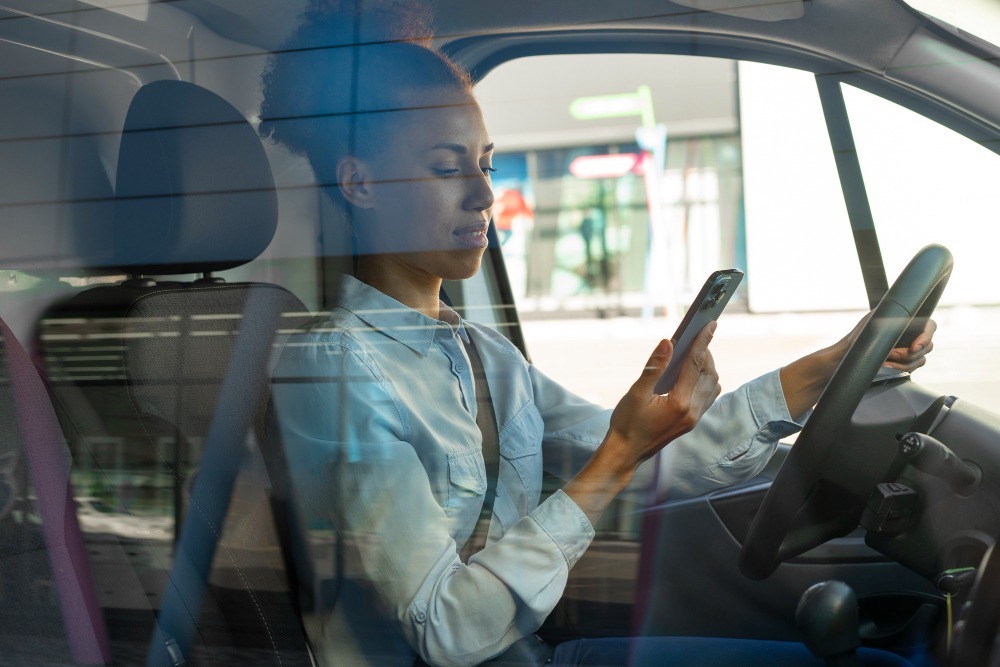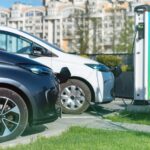The automotive industry has witnessed groundbreaking advancements in technology that are redefining how we interact with and experience vehicles. From enhanced safety features to cutting-edge infotainment systems, these innovations are making driving safer, smarter, and more efficient. In this article, we’ll explore the latest car technologies in 2024 that are transforming the driving experience.
The automotive industry has witnessed groundbreaking advancements in technology that are redefining how we interact with and experience vehicles. From enhanced safety features to cutting-edge infotainment systems, these innovations are making driving safer, smarter, and more efficient. In this article, we’ll explore the latest car technologies in 2024 that are transforming the driving experience.
Autonomous Driving: The Future of Mobility
Self-driving cars are no longer a distant dream. With advancements in artificial intelligence (AI) and sensor technology, autonomous vehicles are becoming more capable of handling complex driving scenarios.
- Key Features:
- Adaptive Cruise Control: Automatically adjusts speed to maintain safe distances.
- Lane-Keeping Assistance: Helps keep the car centered in its lane.
- Full Autonomy: Some cars now offer Level 3 autonomy, allowing drivers to take their hands off the wheel in certain conditions.
- Impact: Reduces human error, which is the leading cause of road accidents, and enhances convenience during long commutes.
Electric Vehicles (EVs): Redefining Sustainability
Electric vehicles are revolutionizing the automotive industry with zero emissions and high efficiency. In 2024, EV technology has made significant strides in range, charging speed, and affordability.
- Innovations:
- Fast-Charging Networks: Ultra-fast chargers now provide up to 80% charge in 15-20 minutes.
- Battery Advances: Solid-state batteries offer longer ranges and shorter charging times.
- Smart Integration: EVs can now connect to smart grids, optimizing energy usage and reducing costs.
- Impact: Makes EVs more accessible, environmentally friendly, and cost-effective for the average driver.
Connected Cars: The Internet on Wheels
Cars are becoming increasingly connected, offering seamless integration with smartphones, home devices, and the internet. Connected technology enhances navigation, entertainment, and vehicle maintenance.
- Key Features:
- Real-Time Navigation: Integration with GPS and live traffic updates for optimized routes.
- Over-the-Air Updates: Automakers can remotely update software to improve performance and add features.
- Vehicle-to-Everything (V2X) Communication: Enables cars to communicate with other vehicles and infrastructure to improve safety.
- Impact: Provides a more convenient and personalized driving experience, ensuring the vehicle is always up-to-date.
Advanced Driver-Assistance Systems (ADAS): Enhanced Safety
ADAS technologies are designed to prevent accidents and protect passengers by providing alerts and automated responses.
- Key Features:
- Automatic Emergency Braking (AEB): Detects obstacles and applies brakes to prevent collisions.
- Blind Spot Detection: Alerts drivers to vehicles in their blind spots.
- 360-Degree Cameras: Offers a comprehensive view around the car for easier parking and maneuvering.
- Impact: Reduces accidents and enhances driver confidence, making roads safer for everyone.
Augmented Reality (AR) Displays: A New Perspective
Augmented reality technology is taking car displays to the next level by projecting information directly onto the windshield or a heads-up display.
- Applications:
- Navigation: AR overlays directions onto the road in real-time.
- Safety Alerts: Highlights pedestrians, vehicles, or obstacles in the driver’s line of sight.
- Speed and Performance Data: Displays critical information without distracting the driver.
- Impact: Improves situational awareness and makes driving more intuitive.
Artificial Intelligence (AI) Integration: Smarter Vehicles
AI is transforming cars into intelligent systems capable of learning and adapting to drivers’ habits.
- Key Features:
- Predictive Maintenance: AI analyzes vehicle data to predict when maintenance is needed.
- Voice Assistants: Allow drivers to control features like climate and music hands-free.
- Adaptive Driving Modes: AI adjusts vehicle settings based on driving conditions and preferences.
- Impact: Enhances convenience, safety, and efficiency while personalizing the driving experience.
Green Technologies: Eco-Friendly Innovations
Beyond EVs, automakers are integrating green technologies to reduce the carbon footprint of traditional vehicles.
- Innovations:
- Hybrid Powertrains: Combine gasoline and electric power for improved efficiency.
- Lightweight Materials: Use of aluminum and carbon fiber to improve fuel economy.
- Renewable Interiors: Incorporation of recycled and sustainable materials in car design.
- Impact: Supports global efforts to combat climate change while providing economic benefits to drivers.
Biometric Features: Personalized and Secure
Biometric technology is adding a new level of personalization and security to vehicles.
- Key Features:
- Fingerprint or Face Recognition: Enables secure access and personalized settings.
- Health Monitoring: Sensors can detect driver fatigue or health emergencies.
- Gesture Controls: Allows drivers to control features with simple hand movements.
- Impact: Enhances security, convenience, and the overall user experience.
Enhanced Infotainment Systems: Next-Level Entertainment
Modern infotainment systems offer immersive experiences that cater to both drivers and passengers.
- Key Features:
- Larger Touchscreens: High-resolution displays with intuitive interfaces.
- Streaming Services: Integration with platforms like Netflix and Spotify.
- Rear-Seat Entertainment: Independent screens for passengers.
- Impact: Makes journeys more enjoyable and keeps passengers engaged during long trips.
Smart Parking Solutions: Stress-Free Parking
Technology is solving one of the most common frustrations for drivers—finding and maneuvering into parking spaces.
- Innovations:
- Automated Parking: Cars can park themselves in tight spots.
- Parking Assistance: Sensors and cameras guide drivers during parking.
- Parking Apps: Help locate available parking spaces in real-time.
- Impact: Saves time and reduces stress in urban driving environments.
Conclusion
Car technology in 2024 is rapidly evolving, enhancing safety, convenience, and sustainability for drivers worldwide. From self-driving capabilities to eco-friendly innovations, these advancements are shaping the future of mobility. Whether you’re a tech enthusiast or just looking for a safer, smarter ride, the latest innovations are transforming how we experience the road.
Stay updated on these trends to make the most of your driving experience and choose vehicles that align with your needs and values. The future of driving is here, and it’s more exciting than ever.


